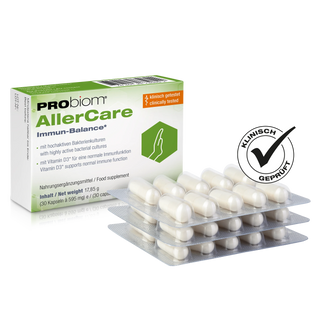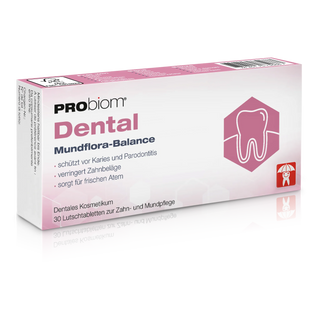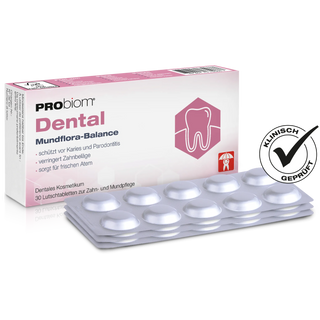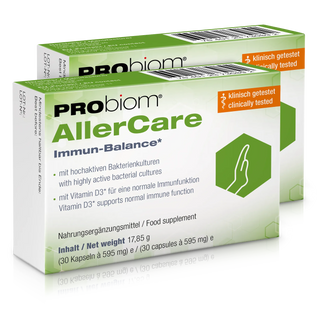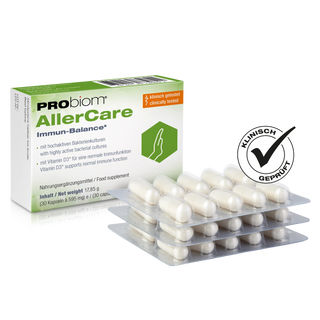Probiotics, also known as "good" bacteria, are microorganisms that can have a positive impact on our health, especially on the gut and immune system. They are found in fermented foods like yogurt, sauerkraut and kimchi, but can also be taken as a dietary supplement. Today we want to look at the top 10 health benefits of probiotics. Let's get started:
Improved digestion
Probiotics are known for their ability to aid digestion. They help regulate the balance of gut flora by inhibiting the growth of harmful bacteria and increasing the number of beneficial bacteria. This can reduce bloating, constipation and diarrhea, especially after antibiotic treatment, which can disrupt the natural balance of gut flora.
strengthening the immune system
A healthy gut flora plays an important role in strengthening the immune system. Probiotics promote the production of antibodies and white blood cells that fight infections. Some studies have shown that regular consumption of probiotics can reduce the frequency of respiratory infections and colds.
Prevention and Treatment of Diarrhea
Probiotics are particularly effective in treating and preventing diarrhea caused by antibiotics or infections. They help restore the balance of the intestinal flora and promote the regeneration of the intestinal mucosa, leading to a faster recovery.
weight loss support
Some studies suggest that probiotics can stimulate metabolism and regulate body weight. Certain probiotic strains, such as Lactobacillus gasseri , have been shown to be particularly useful in reducing abdominal fat and overall body weight. They influence energy metabolism and fat absorption in the intestine.
promoting skin health
Probiotics can also relieve skin problems such as acne, eczema and rosacea. They have an anti-inflammatory effect and help fight harmful bacteria on the skin's surface. In addition, they promote skin hydration, which leads to healthier skin. Lactobacillus paracasei strains in particular have achieved excellent results in studies in improving neurodermatitis, for example.
mental health support
The connection between the gut and the brain, known as the “gut-brain axis,” shows that a healthy gut can contribute to better mental health. Some probiotics may reduce anxiety and depression by increasing levels of serotonin, a hormone that affects mood.
Reduction of allergies and eczema
There is evidence that consuming probiotics can reduce the risk of allergies, especially in children. They help the immune system to react less strongly to allergy-causing substances. In addition, they can relieve eczema by reducing inflammation in the body. Products containing Lactobacillus paracasei are ideal for improving allergies such as hay fever, animal hair or house dust allergies.
promoting heart health
Certain probiotics can lower cholesterol levels and thus promote heart health. They affect fat absorption in the intestines, which leads to less bad LDL cholesterol entering the blood. Some studies also show that probiotics can lower blood pressure.
relief of irritable bowel syndrome (IBS)
For people with irritable bowel syndrome (IBS), probiotics can provide relief from symptoms such as bloating, abdominal pain and diarrhea. Probiotic strains such as Bifidobacterium infantis have been shown to be particularly effective in restoring balance in the gut and reducing discomfort.
promoting dental health
Probiotics can also have a positive effect on oral health. They reduce the growth of harmful bacteria in the mouth that are responsible for tooth decay, gingivitis and bad breath. Studies show that probiotics can improve gum health and reduce the risk of periodontitis. A clinically tested probiotic for dental health (tooth decay, bad breath, gingivitis, periodontitis) is the strain Streptococcus salivarius M18.
Conclusion
Probiotics offer a variety of health benefits, from improving digestion to promoting mental and heart health. By regulating the balance of gut flora and fighting harmful bacteria, they play a central role in overall well-being.



